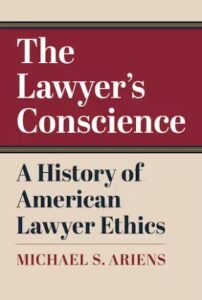Mission, Vocation, and Ethics: A Reflection on The Lawyer’s Conscience
This is the third in a series of three blog posts this week by Marquette law faculty on a new book.
 As a Catholic priest and member of the Society of Jesus (that is, the Jesuits), my life is defined by mission. I may be a professor, a campus minister, even a lawyer, but these professional lives are founded upon—and to an extent dependent upon—that deeper vocational life. While there has been a role for personal judgment and discretion, specific performance of any job comes only subsequent to the religious judgment and discernment of my major superior, who formally “missions” every Jesuit to his particular assignment. I am not merely wafting through whatever I fancy or have some minimal technical proficiency in, and what makes me “good” (or not) stems not from proficiency but from the fact of mission. Vocation begets mission begets profession.
As a Catholic priest and member of the Society of Jesus (that is, the Jesuits), my life is defined by mission. I may be a professor, a campus minister, even a lawyer, but these professional lives are founded upon—and to an extent dependent upon—that deeper vocational life. While there has been a role for personal judgment and discretion, specific performance of any job comes only subsequent to the religious judgment and discernment of my major superior, who formally “missions” every Jesuit to his particular assignment. I am not merely wafting through whatever I fancy or have some minimal technical proficiency in, and what makes me “good” (or not) stems not from proficiency but from the fact of mission. Vocation begets mission begets profession.
I am put in mind of this dynamic as I reflect upon Michael S. Ariens’s recently published The Lawyer’s Conscience: A History of American Lawyer Ethics (University of Kansas Press 2022). Ariens surveys the history of how lawyers imagined themselves and how competing images have been synthesized into a multifaceted, perhaps self-contradictory conception of the modern lawyer. Throughout this survey, from the eve of the American Revolution to the crises of the early 21st century, the core tension has always revolved around this same dynamic: what is the vocation of the lawyer, and, thus, what is the lawyer’s mission, and how does any of this define the lawyer’s profession?
